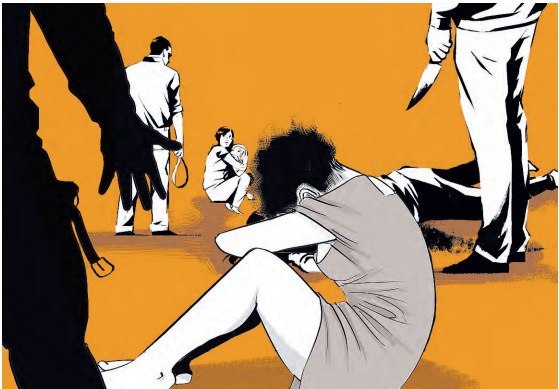
The recent wave of killings in the country mostly targeting women and young girls paints a grim picture of a society riddled with violence, apathy and deep-rooted psychosocial challenges.
The National Police Service reports that more than 97 cases of femicide and intimate partner violence have occurred in the past three months alone, suggesting a huge surge in the prevalence of Sexual and Gender-Based Violence in its various forms.
The situation is devastating because it takes away the victims’ inalienable right to life and causes uncertainty, making people constantly fearful and anxious.
More traumatising is the fact that such horrific incidents take place in spaces victims consider safe—in homes and workplaces—sometimes orchestrated by trusted allies, family members and partners.
Whatever motives underlie these acts of violence and killings, there must be a deliberate, whole-of-society effort to prevent their occurrence and, or recurrence.
One more person must not die for action to be taken. Individually, and as a community, we have a responsibility to save more victims from losing their lives and from the physical, emotional and psychological abuses and human rights violations that sexual and gender-based violence presents.
Imperatively, we must exploit and strengthen all avenues to prevent SGBV and offer holistic support to survivors while confronting existential social, structural and institutional barriers that exacerbate violence.
One such opportunity lies in the Protection against Domestic Violence rules, which provide a framework enabling victims or their representatives to apply for and obtain protection orders against suspected perpetrators.
The orders follow an elaborate judicial process that begins with filing a complaint with the police or any relevant authority notifying them that an act of violence has been or is likely to be committed. Once the complaint is formally lodged by filling out appropriate forms, the receiving officer assists the complainant or the victim in applying for an order of protection.
The rules allow a parent or guardian to apply for the orders on behalf of underage people and people with disabilities.
The respondent is then served with the application and is required to serve a rejoinder to the complainant or file it in court within fourteen days, which sets the matter for mention within seven days.
If the court is satisfied—having examined the evidence submitted and heard the parties—that an act of domestic violence has been committed or is likely to be committed, it issues an order of protection under Section 19 of the Protection Against Domestic Violence Act.
Furthermore, recognising the unique challenges of handling SGBV cases, the judiciary has established specialised courts dedicated to sexual and gender-based violence offences.
The courts are staffed with specially trained judicial officers to handle SGBV-related cases in a manner that prioritises the privacy, dignity, safety and sensitivity of those cases.
This is in addition to the comprehensive Sexual and Gender-Based Violence Strategy 2023-2030, which aims to provide a trauma-responsive Justice System for survivors of sexual and gender-based violence. Twelve Gender Justice specialised courts have been established across the country thus far.
Despite the existence of these rules and comprehensive legal pathways through which pre-meditated acts of violence can be prevented and victims access justice, few cases end up reported to law enforcers.
This can be attributed to the fact that a significant majority of the society has abdicated their civic duty and become bad citizens.
Have we given up respect for the rule of law and lost value for humanity so much so that we are unbothered when our fellow citizens are butchered in our watch? Or have we lost faith in society? Have we gone rogue?











